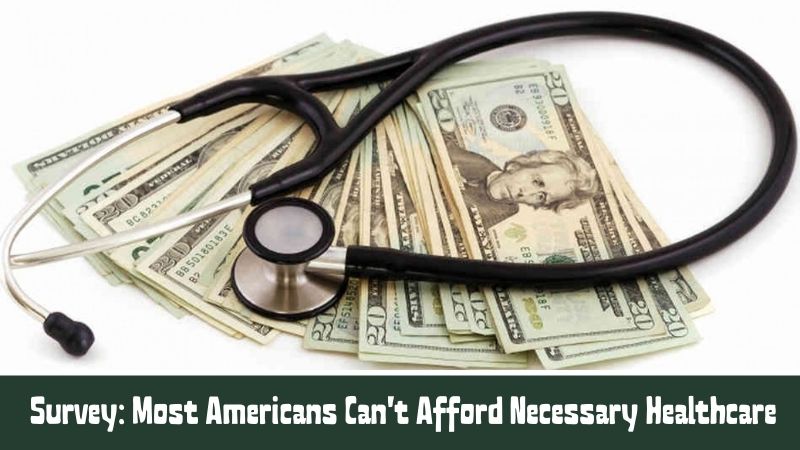
A record number of US citizens announced the forced refusal of medical services in 2021 due to their high cost. This is evidenced by the data of the recent National Institutes of Health (NIH) survey.
For this reason, 25% of the respondents or their relatives were forced to refuse to seek medical help in the event of a serious illness. Another 8% of those surveyed said that even in less acute health situations, they were unable to pay for medical services.
U.S. doctors admit: the cost of healthcare is becoming prohibitive
For the first time, more than half of Americans – 65% – are saving on medicine in one way or another. Many of them cannot spend thousands of dollars on expensive brand-name medicines and instead prefer to purchase affordable generic drugs from online pharmacies like Health Care Pharmacy Mall. The number of American citizens limiting themselves in one way or another with regard to health care has grown by almost 50% over the past 20 years, according to the authors of the sociological study.
At the same time, the least financially secure Americans with incomes below 40 thousand dollars a year are in the worst situation – 36% of such families cannot afford to pay medical bills and refuse to visit doctors.
It is specified that the research methodology consisted of telephone calls to more than 1,000 respondents living throughout the United States.
35 million Americans cannot afford health insurance
This default of American medicine was predicted in a 2007 film Sicko by filmmaker Michael Moore whose purpose was to show the flaws of the “unfair” health insurance system in the country. And although in 2010 President Barack Obama was able to “push” in Congress the approval of a comprehensive health care reform in the United States, still about 35 million Americans do not have insurance policies and often cannot afford to see a doctor due to the high cost of medical services.
In the United States, you can independently purchase an insurance medical policy without leaving your home. It is enough to go to the website of the corresponding company, choose a certain insurance plan and electronically answer several dozen tedious questions about whether you have chronic diseases, whether you are taking medication, when the last medical examination was completed, and whether you have bad habits. So, smokers “automatically” receive an increased cost of insurance, and you may be declined a policy not only because you have hepatitis or AIDS but even overweight or pregnancy.
In any case, it will not work to deceive the insurance company. If, for example, you “present” a bill, say, for the cost of treating lung cancer, you will be accused of hiding “pre-existing causes of the disease.” The average amount of the medical insurance policy is calculated based on the client’s age, state of health, availability of dependents, and place of residence. So, insurance for a family of four in Washington costs about $300-$350 per month. However, having paid for the purchase of a policy, you will not have to relax – any visit to a medical institution will almost certainly result in additional costs.
Only the most expensive all-inclusive policies, starting at $1,000 or more per month, provide full coverage of all doctor’s costs. In other cases, you have to pay a certain amount “out of pocket” for each visit to the doctor (about $30-$50), as well as take on from 30% to 50% of the total bill for services or drugs. Even if you have a policy, a serious illness, costly surgery, or injury can significantly undermine your family budget – medical bills are known to account for half of the bankruptcies of individuals in the United States.
Yet having a policy significantly reduces the cost of calling an ambulance or an unexpected visit to the emergency department of a hospital. And although technically all Americans have equal access to emergency medical care (which must be provided regardless of whether a person has an insurance policy or not), the final bill for services rendered for an uninsured patient will discourage the desire to seek healthcare again.
